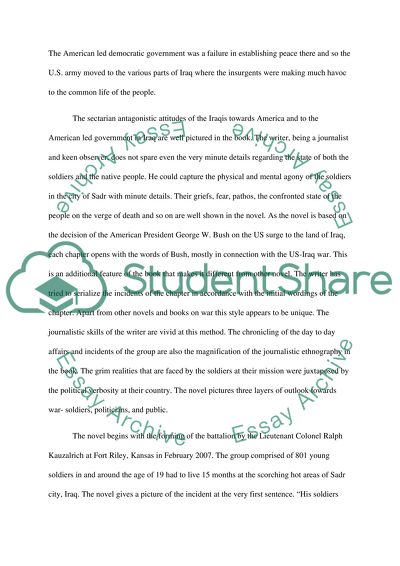Cite this document
(“Review of the book The Good Soldiers Report/ Example | Topics and Well Written Essays - 1250 words”, n.d.)
Review of the book The Good Soldiers Report/ Example | Topics and Well Written Essays - 1250 words. Retrieved from https://studentshare.org/military/1435390-review-of-the-book-the-good-soldiers
Review of the book The Good Soldiers Report/ Example | Topics and Well Written Essays - 1250 words. Retrieved from https://studentshare.org/military/1435390-review-of-the-book-the-good-soldiers
(Review of the Book The Good Soldiers Report/ Example | Topics and Well Written Essays - 1250 Words)
Review of the Book The Good Soldiers Report/ Example | Topics and Well Written Essays - 1250 Words. https://studentshare.org/military/1435390-review-of-the-book-the-good-soldiers.
Review of the Book The Good Soldiers Report/ Example | Topics and Well Written Essays - 1250 Words. https://studentshare.org/military/1435390-review-of-the-book-the-good-soldiers.
“Review of the Book The Good Soldiers Report/ Example | Topics and Well Written Essays - 1250 Words”, n.d. https://studentshare.org/military/1435390-review-of-the-book-the-good-soldiers.


